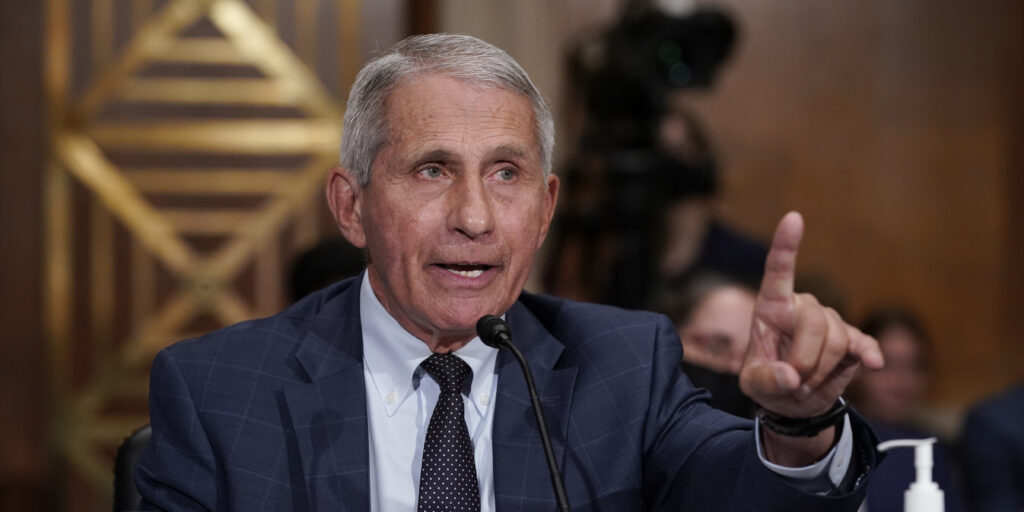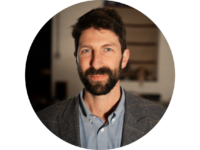Anthony Fauci is finally facing his reckoning
The ex-NIAID director struggled to answer Congress’s questions this week.


This week Dr. Anthony Fauci, who led the US Covid response, sat through a two-day closed-door US congressional hearing aimed at uncovering vital facts about his role in gain-of-function research in Wuhan, scientific censorship and the societal harms of Covid policies. A public hearing is scheduled for later this year.
Chairman of the US Select Subcommittee on Covid, Brad Wenstrup (R-Ohio), released a summary statement yesterday:
“Dr. Fauci’s transcribed interview revealed systemic failures in our public health system and shed light on serious procedural concerns with our public health authority… dissenting opinions were often not considered or suppressed completely.”
– BRAD WENSTRUP
For example, the “6 feet apart rule” that formed the core of social distancing recommendations for the best part of two years, was reportedly not based on any data: “it just sort of appeared”, Chair Wenstrup quoted Fauci as saying.
He also added that Fauci admitted that the widespread use of Covid vaccine mandates in 2021-22 would likely increase long-term vaccine hesitancy. Mandates have had severe impacts on public trust and numerous adverse unintended consequences, including job losses. Fauci reportedly urged American universities to adopt them, despite the widespread clinical and social evidence against their use for young people.
Further, he claimed that the lab leak hypothesis is, despite his persistent efforts to vilify and dismiss it, not “a conspiracy theory”. However, despite his agency funding the Wuhan Institute of Virology’s gain of function research, he reportedly played elusive semantic gymnastics, again, with the definition of the term.
Dr. Fauci also claimed that he “did not recall” pertinent information or conversations more than 100 times. This is less than the 174 times he did so during a legal deposition in 2022 focused on his collusion with social media companies to censor debate, a case headed to the Supreme Court this year.
Fauci’s role in stifling policy debate included attacking reputable scientists who advocated against lockdowns, school closures and mask and vaccine mandates — most notably the authors of the Great Barrington Declaration. In an email obtained through a FOI in October 2020, Fauci and his boss, Francis Collins, head of NIH, labelled Sunetra Gupta (Oxford), Jay Bhattacharya (Stanford), and Martin Kulldorff (Harvard) three “‘fringe epidemiologists” and called for a “quick and devastating published take down” of the GBD in the American media.
They got one: an insidious new public discourse about “medical misinformation” and the “infodemic” emerged that maligned, smeared and pressured public intellectuals and researchers who did not fall into line with the official government Covid approach. Meanwhile, in an infamous interview in mid-2021, Fauci stated that: “Attacks on me quite frankly are attacks on science.”
It is now clear that the mainstream lockdown doctrine caused significant public health harm and eroded democratic norms. And Fauci, 82, who sat at the apex of American scientific power for 38 years as head of the National Institute of Allergy and Infectious Diseases (NIAID) and was the best paid public employee in the US government before retirement, should be held publicly accountable for his mistakes.
Yet he continues to collect accolades: a recent statement by the American Medical Association claimed that his dedication to “medical science has served the world well” and he has reportedly signed a $5 million dollar contract with a subsidiary of Penguin Random House, for his memoir, on par with the celebrity status of the Obamas.
Incredibly, Fauci rarely mentioned the harms of Covid policies during the pandemic years. In one of the few instances, in a March 2022 BBC interview, he cited the “unintended negative consequences” of lockdowns on children and the economy. We “may never know what the right balance is”, he stated.
The great irony is that public statements by Collins, a geneticist by training, and Fauci, a virologist, reveal a profound ignorance of traditional public health ethics and policy. More holistic assessments of the consequences of Covid policies have shown severe, known and long-lasting consequences on the social determinants of health: “the conditions where people are born, live, learn, work, play, worship and age that affect a wide range of health, functioning and quality-of-life outcomes and risks”.
The Covid policies supported by Fauci, Collins and other mainstream biomedical scientists and bureaucrats must be called to account for failing to balance infection control with social harms, wellbeing and civil liberties. It will be a long road overturning the poor legacy of Fauci and others in the mainstream establishment. But growing scepticism about his tenure suggests that America and beyond is moving in the right direction.
Follow Kevin Bardosh on X (formerly Twitter) @KevinBardosh
